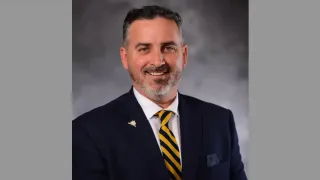
Sep 14
Sam Brunclik Leads Historic LGBTQ+ Inclusion in Science: ACS Establishes Committee on the Advancement of LGBTQ+ Chemists
READ TIME: 3 MIN.
On August 20, 2025, the American Chemical Society —the world’s largest scientific society—approved a motion to create the Committee on the Advancement of LGBTQ+ Chemists , a historic development in the journey toward full inclusion for LGBTQ+ professionals in science. At the helm is Sam Brunclik, a dynamic nonbinary chemist, educator, and advocate whose tireless work is reshaping the landscape of scientific governance and LGBTQ+ visibility .
This achievement traces back to the late 1990s, when ACS members formed the LGBTQ Chemists and Allies group—a caucus within the National Organization of Gay and Lesbian Scientists and Technical Professionals . This early activism was driven by a pressing need for visibility, safety, and community among queer scientists who often felt isolated in academic and professional settings .
By 2010, ACS formalized these efforts with the establishment of the Subdivision for Gay and Transgender Chemists and Allies, later renamed ACS Pride in 2022. Under the stewardship of leaders like Barbara Belmont and more recently Sam Brunclik, ACS Pride provided a safe space for LGBTQ+ chemists, launched impactful programming at national meetings, and offered initiatives such as Safe Zone training and the ACS Pride Merck Graduate Research Award .
Membership in ACS Pride grew remarkably, from 146 in 2018 to 376 in 2025 , reflecting the increasing demand for representation and advocacy .
Brunclik, who will serve as the inaugural chair of CALC, expressed the significance of the new committee in a post from the ACS Pride account: “Especially in recent times, many LGBTQ+ chemists have felt isolated and excluded from important conversations. This committee will formalize our voice in Society governance and policy” .
CALC’s charter is designed to:
- Serve as a colloquy for LGBTQ+ chemists
- Provide resources to queer professionals in chemistry
- Increase LGBTQ+ participation in ACS and the chemical sciences
- Spotlight chemists from the queer community and their allies
- Advise ACS leadership on matters of key concern to the community
Unlike subdivisions, which can only make recommendations, CALC will have direct access to the ACS Board of Directors, enabling swift and meaningful action on policy, programs, and advocacy. “With a committee, if something comes up that we are concerned about or that we want to voice our opinion on, we will have direct access to the Board,” Brunclik explained .
Historically, LGBTQ+ scientists have faced significant barriers in academia and industry, ranging from invisibility and lack of mentorship to outright discrimination and exclusion from leadership roles. The absence of formal representation in professional governance limited their ability to influence policy and shape workplace culture .
Chris Bannochie, a longtime ACS Pride member and contributor to CALC’s strategic plan, emphasized the importance of visibility: “There has been a tendency to forget about the LGBT community. Now there’s an expectation that we will represent ourselves, and that’s really, really exciting” .
Brunclik’s leadership is seen not only as a personal achievement but as a victory for all LGBTQ+ chemists who have worked for decades to secure a seat at the table. The establishment of CALC is expected to inspire similar initiatives across other scientific disciplines and professional organizations .
CALC will be comprised of 25 members and join the ranks of 44 ACS committees, including other diversity-focused groups like the Committee on Minority Affairs and the Women Chemists Committee. These committees inform ACS leadership and help set society-wide policies on diversity, inclusion, and equity .
Brian Mathes, chair of the Committee on Committees , noted, “As a member organization, our job is to make sure that people who are involved with ACS feel that they are included and that they belong. It couldn’t be more timely for us to show what our core values are” .






